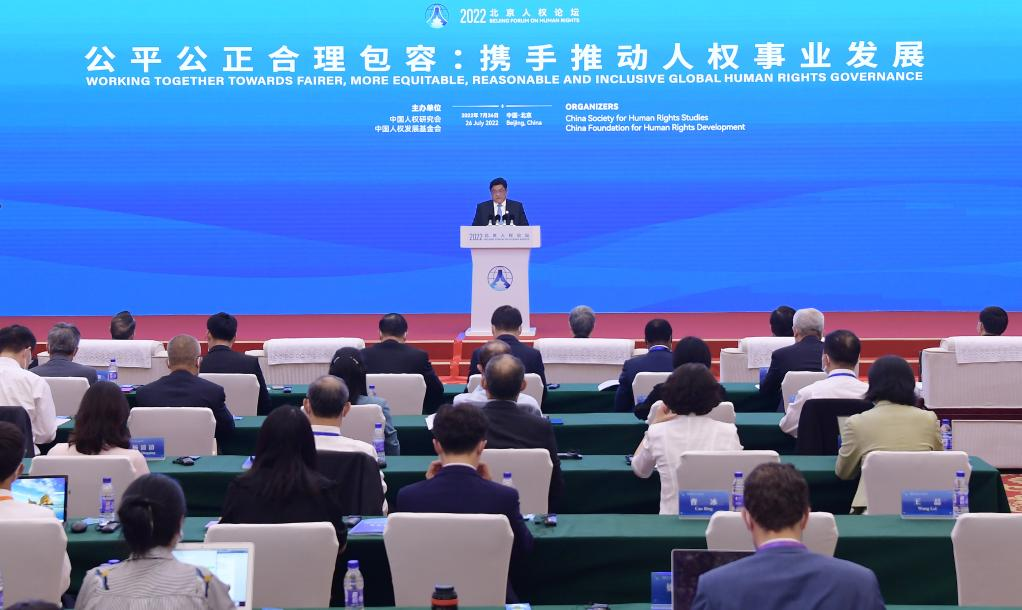
Padma Choling, vice chairman of the Chinese National People's Congress Standing Committee and president of the China Society for Human Rights Studies, addresses the 2022 Beijing Forum on Human Rights in Beijing, capital of China, July 26, 2022. (Xinhua/Li He)
BEIJING, July 26 -- Participants at this year's Beijing Forum on Human Rights called for strengthened cooperation in global human rights governance.
BEIJING, July 26 -- Participants at this year's Beijing Forum on Human Rights called for strengthened cooperation in global human rights governance.
Themed "Working Together towards Fairer, More Equitable, Reasonable and Inclusive Global Human Rights Governance," the forum is co-organized by the China Society for Human Rights Studies (CSHRS) and the China Foundation for Human Rights Development (CFHRD) on Tuesday.
About 200 senior officials, researchers and diplomats from nearly 70 countries or international organizations attended the event, which is the tenth of its kind since 2008.
Addressing the forum, CSHRS President Padma Choling, also vice chairman of China's National People's Congress Standing Committee, said that the development of human rights is a common cause of humanity, which depends on all countries in the world working together towards the same direction.
He called on countries to build consensus on human rights development, better promote people's welfare and improve global human rights governance to cope with challenges of the times.
Huang Mengfu, chairman of the CFHRD, said the theme of this year's forum is in line with the common aspiration of mankind to strengthen and improve global human rights governance in today's world.
Noting that the international human rights order and the foundation of good governance are facing serious challenges due to unilateralism and power politics of a few countries, Huang stressed that global human rights governance should be promoted with mutual consultation and the joint wisdom and efforts of countries.
Similar views were also expressed by foreign participants, including Danilo Turk, former president of Slovenia.
Turk said that cooperation should take precedence over competition and confrontation, not only as a political and developmental requirement, but also a requirement for the development of human rights.
Akmal Kholmatovich Saidov, first deputy speaker of the Legislative Chamber of the Oliy Majlis of Uzbekistan and director of the National Human Rights Center of the Republic of Uzbekistan, said that there is no universal development model that applies to all countries, and strengthening international cooperation is essential for the full realization of the UN Sustainable Development Goals.
Only on the basis of respecting human rights, democracy and the rule of law can we usher in a world of stability, sustainable development and prosperity, he said.
Experts also shared their observations on China's human rights practice.
John Ross, former director of Economic and Business Policy of London and currently a senior fellow of Chongyang Institute for Financial Studies under Renmin University of China, summarized China's human rights philosophy as one that focuses on practical results.
China's philosophy has achieved remarkable results in eliminating absolute poverty, safeguarding women's rights and interests, and ensuring people's right to life and health under the COVID-19 pandemic, said Ross, adding that the progress has made great contributions to improving the global human rights situation.


